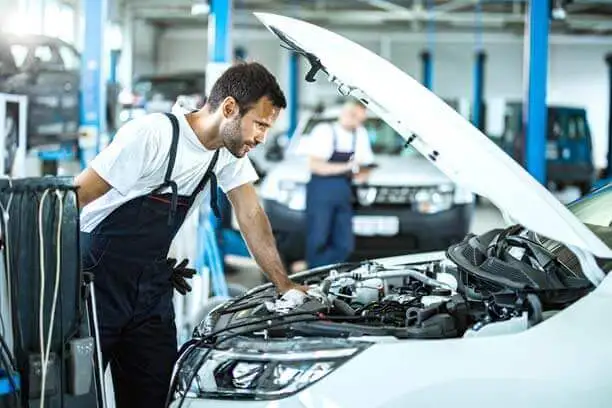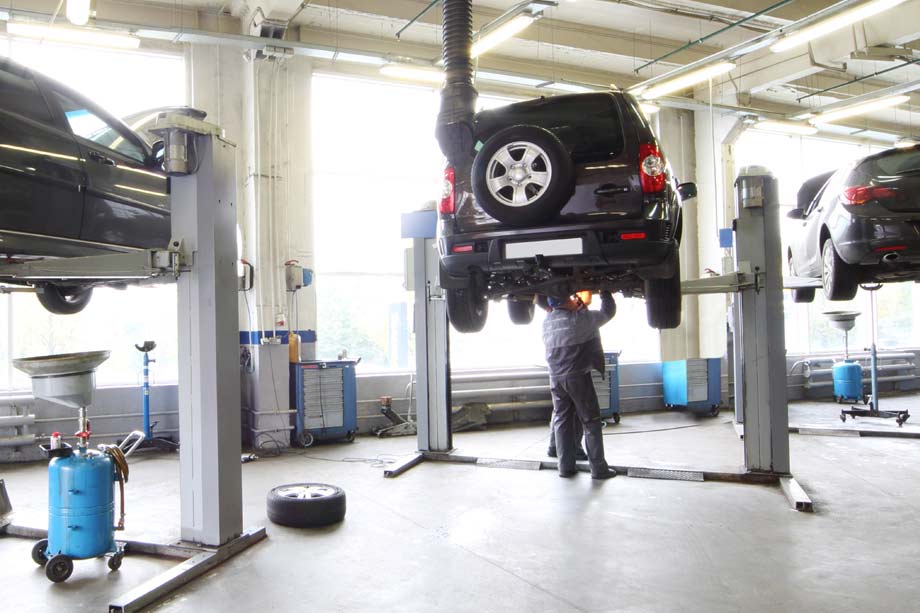All Categories
Featured
Your vehicle's engine is among the most intricate systems in your car, and every component plays an essential role in guaranteeing it runs smoothly. Among these, the timing belt is one of the most essential however usually overlooked parts of your engine. Liable for synchronizing the rotation of the crankshaft and camshaft, the timing belt makes sure the engine's valves open and close at the appropriate times during the burning procedure. It can result in extreme engine damage if the timing belt falls short. Here's why timing belt substitute is vital for your automobile's performance and longevity.
What Is a Timing Belt? The timing belt is a long, toothed rubber or composite belt that links the crankshaft to the camshaft(s) in an inner combustion engine. Its work is to maintain the engine's valves and pistons in sync, ensuring the engine runs successfully. The timing belt likewise controls various other vital engine functions like the water pump and the power steering pump, relying on the car.
![]()
Without the correct timing, the engine's valves and pistons can clash, leading to costly and comprehensive damages. Replacing the timing belt on timetable is one of the finest ways to guarantee your engine runs at its finest and prevent expensive repairs.
Why Timing Belt Replacement Issues. Protecting Against Catastrophic Engine Damages: The most significant threat of not replacing a worn timing belt is engine failure. Replacing the timing belt at the recommended intervals is the ideal method to prevent such tragic damages, conserving you from the tension and high cost of engine repair work or substitute.
![]()
Keeping Engine Performance: A timing belt that remains in good condition guarantees that all engine parts work in perfect harmony. If the timing belt is used or stretched, it can create the engine to shed power, experience harsh idling, or battle to start. By replacing the timing belt routinely, you can keep your engine running at peak effectiveness, which helps preserve ideal fuel economic climate and efficiency.
Preventing Unforeseen Break downs: A busted timing belt can create your engine to stop abruptly, possibly leaving you stranded in the middle of a journey. By changing your timing belt on time, you reduce the threat of unexpected breakdowns that can leave you in a dangerous or bothersome situation. Routine maintenance reduces the possibilities of experiencing these type of disruptions, helping you remain on the road much longer without stressing over your engine failing.
Cost-Effective Maintenance: Timing belt substitute is a lot cheaper than repairing or replacing an engine that's been damaged because of a timing belt failing. While the price of changing the timing belt might vary relying on your automobile and its area, it is even more affordable than the costs related to significant engine repairs or substitutes. Replacing your timing belt at the suggested periods can save you a substantial amount of money over the lengthy run by preventing damage to your engine.
When Should You Replace Your Timing Belt? The timing belt does not last permanently, and the majority of producers advise changing it between 60,000 and 100,000 miles. Nevertheless, the exact timing depends upon your car's make, version, and driving conditions, so it's vital to inspect your proprietor's guidebook for details guidance.
Indications that your timing belt may need focus consist of uncommon engine sounds (such as a high-pitched whining or ticking sound), difficulty starting the engine, or a decrease in engine performance. If you notice any of these indicators, it's critical to have the timing belt checked by a specialist mechanic.
![]()
Conclusion. The timing belt is a small yet crucial part of your engine, and normal substitute is key to maintaining your lorry's performance and stopping pricey damage. By remaining on top of timing belt upkeep, you'll guarantee your engine runs efficiently, prevent unforeseen breakdowns, and secure your auto from significant repair services. Maintain an eye on your lorry's recommended timing belt substitute routine, and always speak with a trusted mechanic to maintain your engine running smoothly for years ahead.
What Is a Timing Belt? The timing belt is a long, toothed rubber or composite belt that links the crankshaft to the camshaft(s) in an inner combustion engine. Its work is to maintain the engine's valves and pistons in sync, ensuring the engine runs successfully. The timing belt likewise controls various other vital engine functions like the water pump and the power steering pump, relying on the car.

Without the correct timing, the engine's valves and pistons can clash, leading to costly and comprehensive damages. Replacing the timing belt on timetable is one of the finest ways to guarantee your engine runs at its finest and prevent expensive repairs.
Why Timing Belt Replacement Issues. Protecting Against Catastrophic Engine Damages: The most significant threat of not replacing a worn timing belt is engine failure. Replacing the timing belt at the recommended intervals is the ideal method to prevent such tragic damages, conserving you from the tension and high cost of engine repair work or substitute.

Keeping Engine Performance: A timing belt that remains in good condition guarantees that all engine parts work in perfect harmony. If the timing belt is used or stretched, it can create the engine to shed power, experience harsh idling, or battle to start. By replacing the timing belt routinely, you can keep your engine running at peak effectiveness, which helps preserve ideal fuel economic climate and efficiency.
Preventing Unforeseen Break downs: A busted timing belt can create your engine to stop abruptly, possibly leaving you stranded in the middle of a journey. By changing your timing belt on time, you reduce the threat of unexpected breakdowns that can leave you in a dangerous or bothersome situation. Routine maintenance reduces the possibilities of experiencing these type of disruptions, helping you remain on the road much longer without stressing over your engine failing.
Cost-Effective Maintenance: Timing belt substitute is a lot cheaper than repairing or replacing an engine that's been damaged because of a timing belt failing. While the price of changing the timing belt might vary relying on your automobile and its area, it is even more affordable than the costs related to significant engine repairs or substitutes. Replacing your timing belt at the suggested periods can save you a substantial amount of money over the lengthy run by preventing damage to your engine.
When Should You Replace Your Timing Belt? The timing belt does not last permanently, and the majority of producers advise changing it between 60,000 and 100,000 miles. Nevertheless, the exact timing depends upon your car's make, version, and driving conditions, so it's vital to inspect your proprietor's guidebook for details guidance.
Indications that your timing belt may need focus consist of uncommon engine sounds (such as a high-pitched whining or ticking sound), difficulty starting the engine, or a decrease in engine performance. If you notice any of these indicators, it's critical to have the timing belt checked by a specialist mechanic.

Conclusion. The timing belt is a small yet crucial part of your engine, and normal substitute is key to maintaining your lorry's performance and stopping pricey damage. By remaining on top of timing belt upkeep, you'll guarantee your engine runs efficiently, prevent unforeseen breakdowns, and secure your auto from significant repair services. Maintain an eye on your lorry's recommended timing belt substitute routine, and always speak with a trusted mechanic to maintain your engine running smoothly for years ahead.
Latest Posts
Protect Your Home with Top Quality Residential Roofing
Published en
1 min read
Don’t Miss Special Auto Repair Offers in Chicago at Montclare Auto Repair
Published en
1 min read
Find Brake Repair & More: Comprehensive Services Guide from Montclare Auto Repair
Published en
1 min read
More
Latest Posts
Protect Your Home with Top Quality Residential Roofing
Published May 23, 25
1 min read
Don’t Miss Special Auto Repair Offers in Chicago at Montclare Auto Repair
Published May 23, 25
1 min read
Find Brake Repair & More: Comprehensive Services Guide from Montclare Auto Repair
Published May 22, 25
1 min read